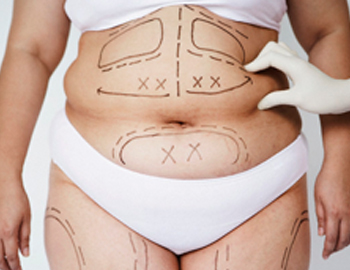 Good morning readers!
Good morning readers!
Today the subject is serious and interesting! Let’s talk about stomach reduction surgery, also known as bariatric surgery and how Chinese medicine sees the consequences of this process.
This type of surgery is indicated, according to the World Health Organization (WHO), for patients with BMI above 35 kg / m² who have complications such as sleep apnea, hypertension, diabetes, increased blood fats and joint problems, or for patients with a BMI greater than 40 kg / m² who have not been successful in losing weight after two years of clinical treatment (including the use of medications).
In other words, it is not cosmetic surgery, and it is indicated carefully for those who are already having severe damage to health.
In this surgery, part of the stomach is isolated, decreasing its ability to receive food for digestion, causing, consequently, the patient to eat less and become drastically thin.
It is indisputable that the patient who performs this surgery has health benefits, but with less food intake, there is also less absorption of proteins, vitamins, minerals. And so, other health problems can arise, such as anemia, early osteoporosis among others.
But how does Chinese medicine see this process and how can it help people who have undergone bariatric surgery?
In Chinese Medicine, the Stomach is the organ that produces body fluids, the Jin Ye, which fluidize mucous membranes, generate tears, sweat, etc. It is also the main digestive organ, which sends the matured and decomposed food to the Spleen to transform Gu Qi (food energy) and thus the energy transformation chain goes through other organs. In this text, we will focus on the functioning of these two organs after bariatrics.
As the bariatric patient manages to consume only between 10 and 30% of the foods he was able to consume before the surgery, the Stomach will suffer in its functions, as it will no longer have the energy it had previously to function.
Stomach Qi Deficiency causes: dry mouth, dry eyes, dry skin and vagina, hunger without wanting to eat, weakness muscles, reflux, changes in bowel function.
And as the Stomach receives less food, less raw material will also pass for the Spleen to function, which results in Deficient Qi and later Deficient Blood Spleen, which generates symptoms of: muscle weakness, impaired memory (lack of memory , lapses, difficulty in attention), sagging skin and muscles, chronic tiredness, loose stools, ptosis of organs, among other consequences.
With a weak Spleen, the entire energy transformation chain in the body will be compromised, and in the medium / long term, other organs such as the Lung, Kidney, Liver and Heart may be affected. Thus, problems such as decreased breathing capacity on physical exertion, sudden drops in blood pressure, difficulty in digesting fats, hair loss, brittle nails, may also appear.
As bariatric surgery is always indicated for patients who will really benefit their health, greater than the harm caused by it, the acupuncturist who receives a patient who underwent stomach reduction surgery in his office must ALWAYS strengthen the Stomach and the Spleen, trying not only to avoid / improve the symptoms mentioned above, but also to avoid breaking the energy transformation in the body.
They are suggested as points to strengthen the Stomach and Spleen: ST-36, ST-41, BL-21, BL-6, SP-2, SP-3, BL-20, BL-49.
In auriculotherapy, Stomach, Spleen, Pancreas, Metabolism points can be used.
And in therapeutic food, neutral foods from the Earth element should be used.
Chinese herbs should be used when the conventional treatment of acupuncture + therapeutic feeding is not enough.
A dietary re-education accompanied by a nutritionist and hormonal monitoring by the endocrinologist must always be performed in conjunction with acupuncture.
The treatment with acupuncture in these cases is extensive, and should be performed at least one session per week, for 3 to 6 months after surgery and then the patient is reassessed for discharge.
That’s it, I hope you liked it and that it was a very useful text.
A big hug for everyone!
Profa. Fernanda Mara